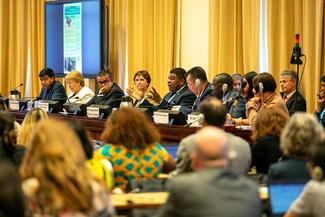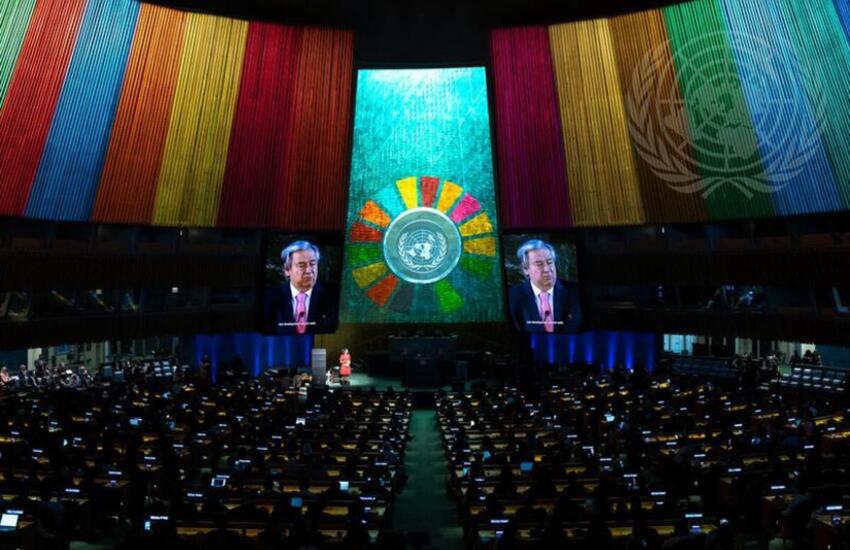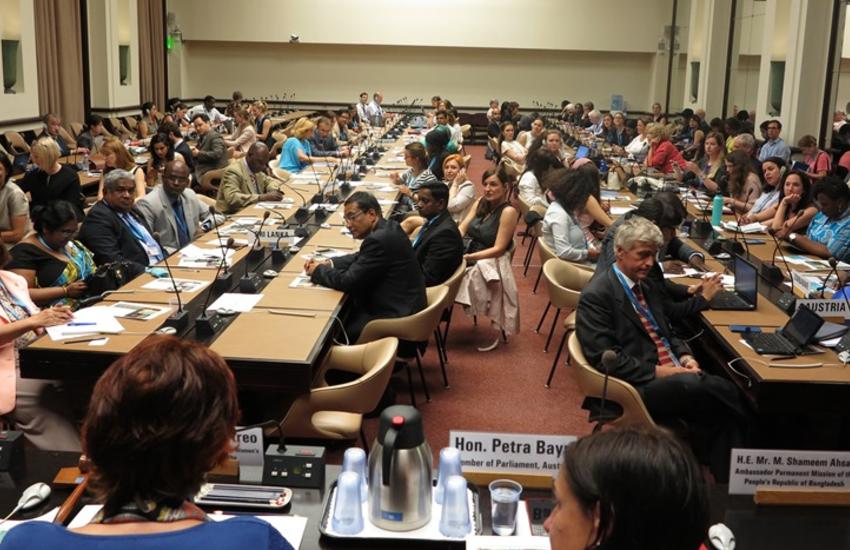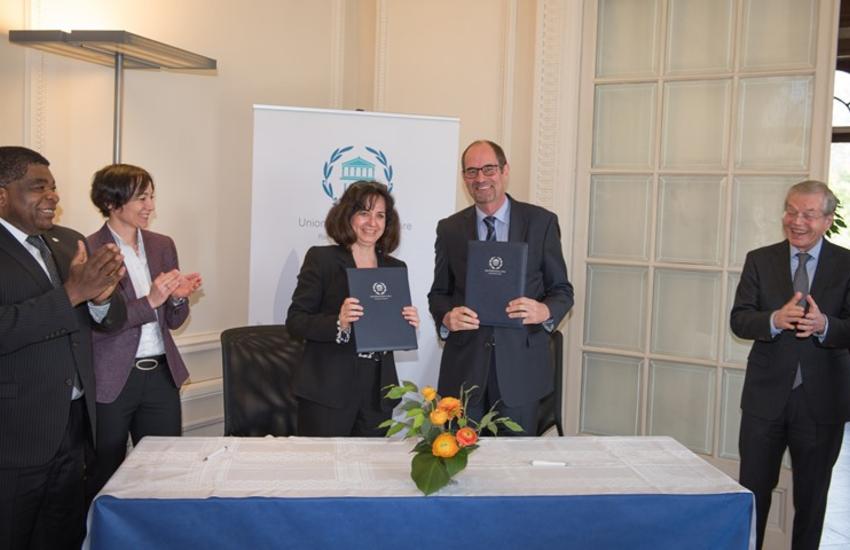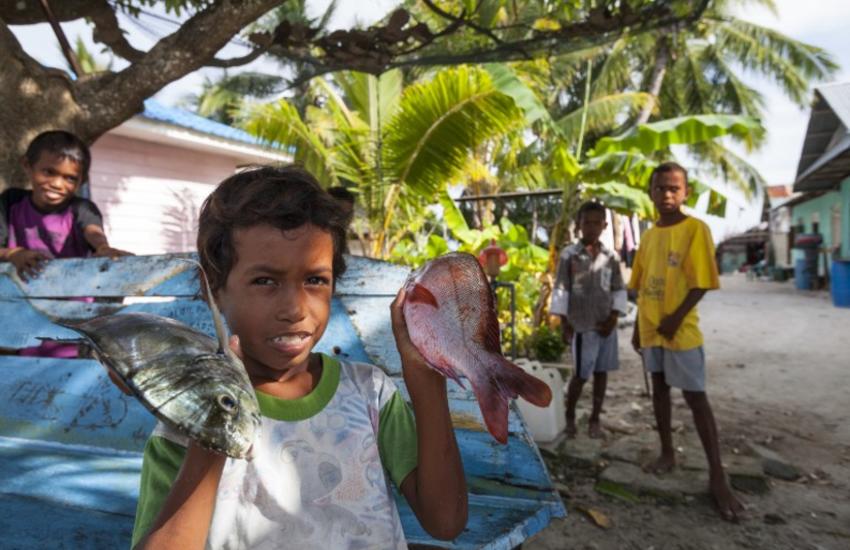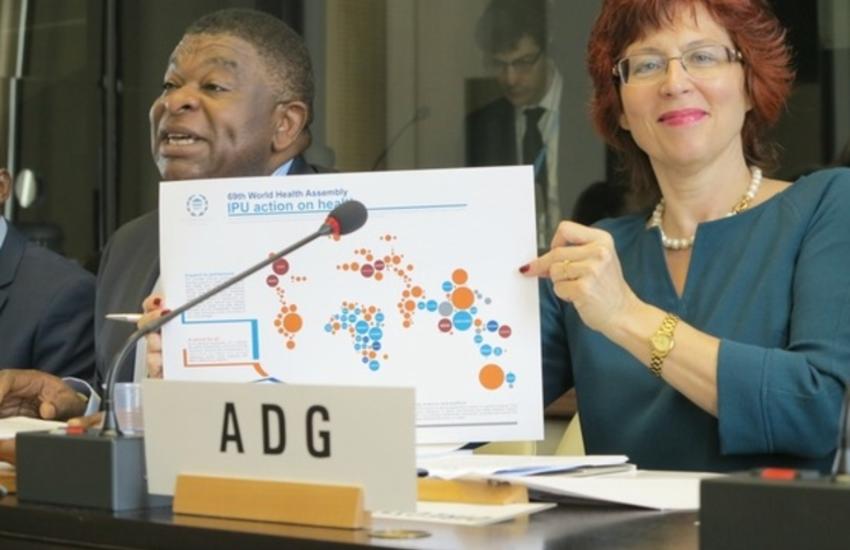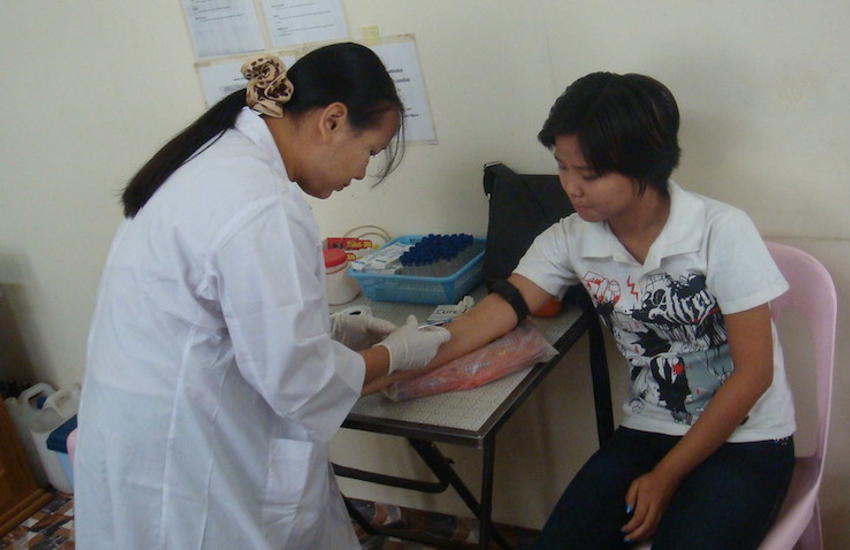What role can parliaments play in achieving universal health coverage and global health security? A vital one - according to a technical briefing co-organized by the World Health Organization (WHO) and the Inter-Parliamentary Union (IPU) at the 71st World Health Assembly in Geneva.
At least 400 million people in the world have no access to essential health services, and 40 per cent of the world’s population lack social protection. Achieving Universal Health Coverage (UHC), including for the most marginalized and vulnerable sectors of society, is a crucial objective for many countries and part of the Sustainable Development Goals (SDGs). UHC enables all people to receive the health services they need without suffering financial hardship.
This was the third consecutive parliamentary event at the World Health Assembly, reinforcing the partnership between the WHO and the IPU; and between the health and the parliamentary communities. Earlier in the year, Dr. Tedros Adhanom Ghebreyesus, WHO Director-General, had presented his vision to the global parliamentary community at the 138th IPU Assembly. “Achieving UHC is a political choice,” said Dr. Tedros, himself a former member of parliament, “I have seen first-hand how parliamentarians can move the health agenda forward.”
"If we want to succeed with the health-for-all agenda, we need the highest political commitment”, stressed panellist Michelle Bachelet, former President of Chile and new Board Chair of the Partnership for Maternal, Newborn and Child Health, “and that includes parliamentarians alongside governments."
IPU Secretary General, Martin Chungong, added "Parliaments have the power to make laws and hold governments to account, and these powers need to be used to achieve health for all. Actively engaging parliamentarians in global health is critical, given the vital role they play in translating scientific evidence into political action.”
With Michèle Boccoz, WHO Assistant Director-General for External Relations, chairing the discussion, the panel was also composed of Oscar Rwegasira Mukasa, Member of Parliament from Tanzania; Serik Bekturganov, Member of the Senate of Kazakhstan; as well as the Chair and the Vice-Chair of the IPU Advisory Group on Health, respectively Habibe Millat, Member of Parliament from Bangladesh; and Petra Bayr, Member of Parliament from Austria.
The IPU Advisory Group on Health is part of the IPU’s overall commitment to health and to helping achieve the SDGs. Set up in 2006, initially to focus on HIV/AIDS before expanding its remit to cover health as a whole, the Group helps parliaments to create effective laws to respond better to HIV/AIDS and to ensure access to healthcare for mothers and children. It is expected to steer the IPU’s drive to support Universal Health Coverage and Global Health Security.





